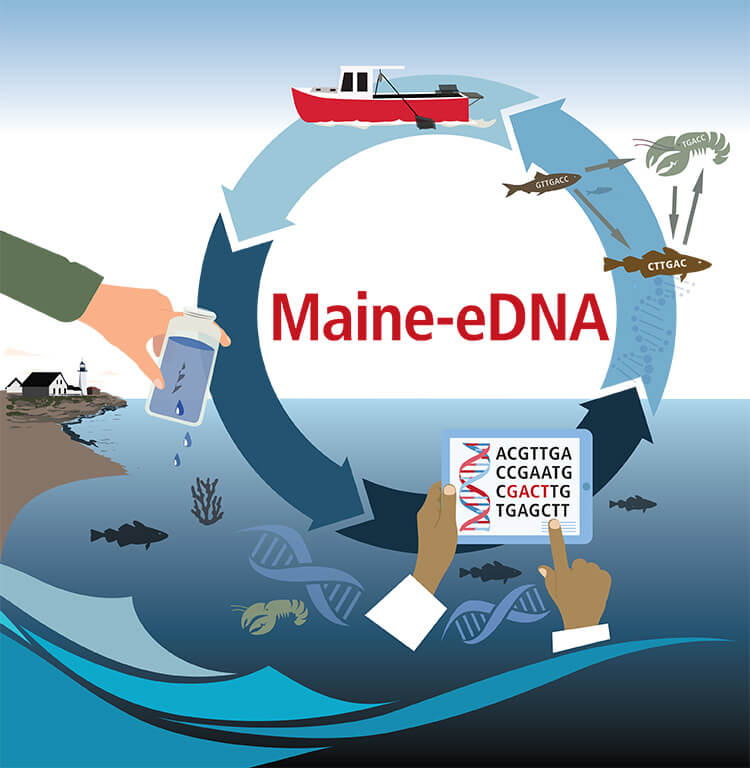A $20 million grant from the National Science Foundation EPSCoR program will fund a five-year initiative that aims to revolutionize environmental monitoring, ecological understanding and sustainability of coastal ecosystems.
The University of Maine is partnering with Bigelow Laboratory for Ocean Sciences and other collaborators in education, government agencies, citizen’s groups and local industry statewide.
“The Maine Environmental DNA (Maine-eDNA) initiative represents a multi-institutional partnership that will position Maine as a national leader in the understanding and sustainable use of coastal ecosystems, and in addressing the statewide workforce needs in critically important areas, including biotechnology, ecology, environmental and data sciences,” says principal investigator Kody Varahramyan, UMaine vice president for research and dean of the graduate school.
The Maine eDNA program will continue statewide, multi-institutional marine-related research following the completion of the Sustainable Ecological Aquaculture Network (SEANET) program, the NSF EPSCoR project awarded in 2014. As noted in the newly released University of Maine System “Research and Development Plan,” Maine EPSCoR has a critical role in improving R&D infrastructure and capacity statewide.
“Keeping Maine’s coastal ecosystem healthy is essential to preserving this precious natural resource that sustains thousands of Maine jobs,” according to U.S. Sens. Susan Collins and Angus King in a joint statement. “This investment will advance the University of Maine’s work, in partnership with Bigelow Laboratory, to better understand our coastal ecosystem and find solutions to offset the impacts of changing ocean conditions on our communities, marine life and economy.”
READ MORE at umaine.edu

